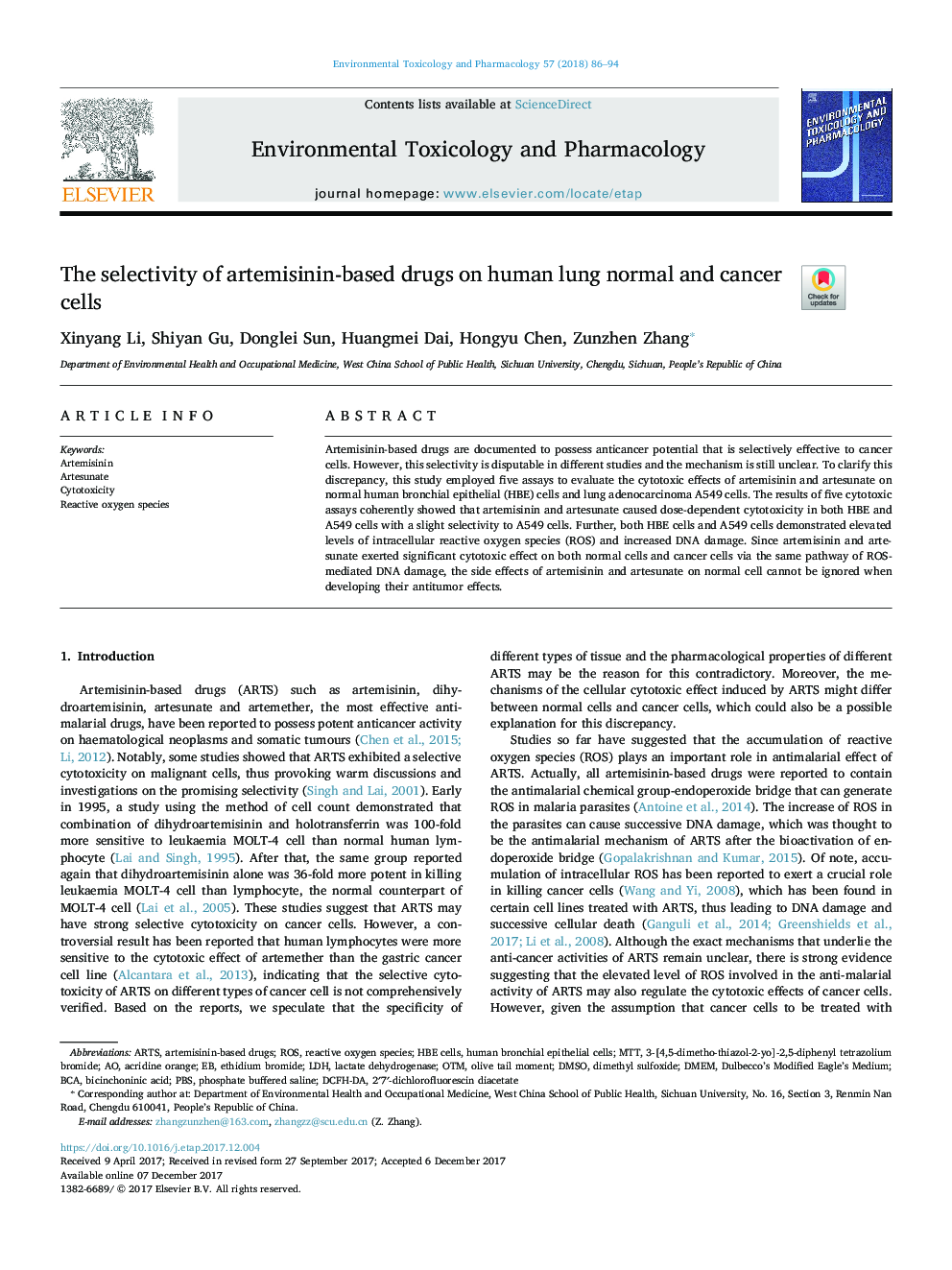| Article ID | Journal | Published Year | Pages | File Type |
|---|---|---|---|---|
| 8546048 | Environmental Toxicology and Pharmacology | 2018 | 9 Pages |
Abstract
Artemisinin-based drugs are documented to possess anticancer potential that is selectively effective to cancer cells. However, this selectivity is disputable in different studies and the mechanism is still unclear. To clarify this discrepancy, this study employed five assays to evaluate the cytotoxic effects of artemisinin and artesunate on normal human bronchial epithelial (HBE) cells and lung adenocarcinoma A549 cells. The results of five cytotoxic assays coherently showed that artemisinin and artesunate caused dose-dependent cytotoxicity in both HBE and A549 cells with a slight selectivity to A549 cells. Further, both HBE cells and A549 cells demonstrated elevated levels of intracellular reactive oxygen species (ROS) and increased DNA damage. Since artemisinin and artesunate exerted significant cytotoxic effect on both normal cells and cancer cells via the same pathway of ROS-mediated DNA damage, the side effects of artemisinin and artesunate on normal cell cannot be ignored when developing their antitumor effects.
Related Topics
Life Sciences
Environmental Science
Health, Toxicology and Mutagenesis
Authors
Xinyang Li, Shiyan Gu, Donglei Sun, Huangmei Dai, Hongyu Chen, Zunzhen Zhang,
